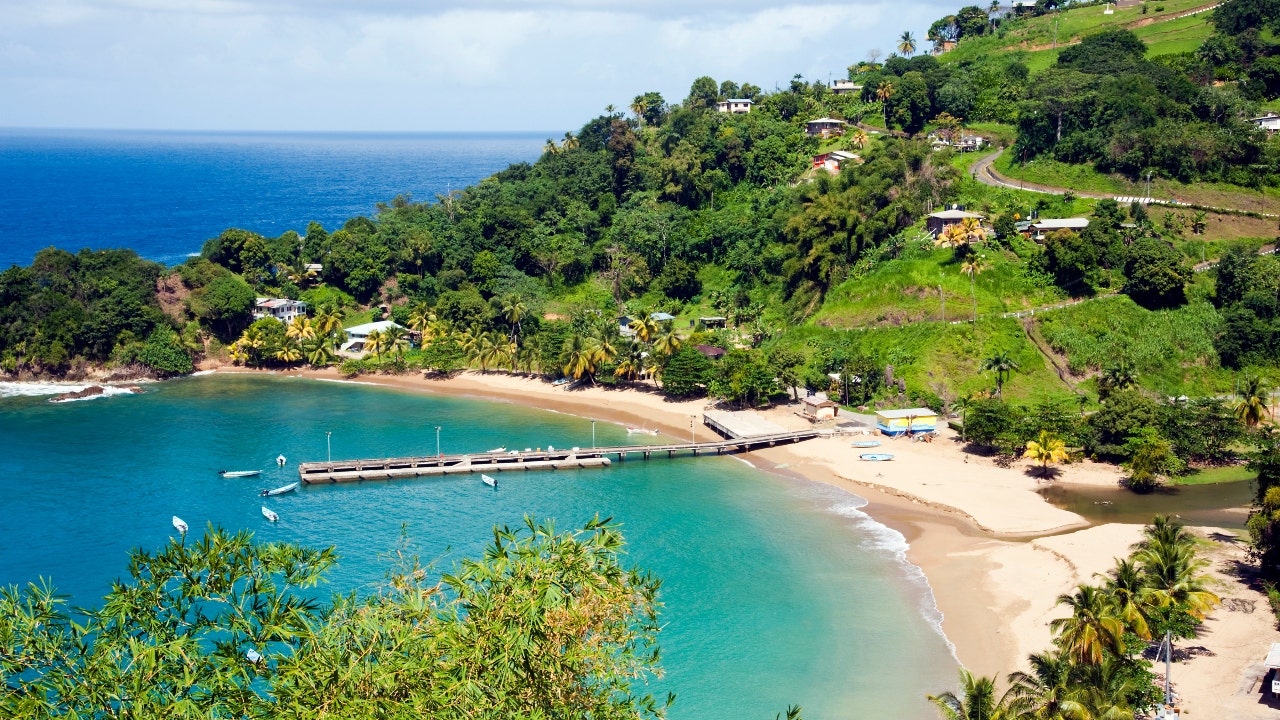Caribbean Travel Warning: Terrorism & Kidnapping Risks Rise
Editor's Note: A concerning rise in terrorism and kidnapping threats across parts of the Caribbean has prompted this urgent travel advisory. Stay informed and prioritize safety.
Why This Matters: The Caribbean, a popular destination for tourists seeking sun, sand, and relaxation, is facing a growing threat of terrorism and kidnappings. These incidents, though relatively infrequent compared to other global hotspots, pose a significant risk to travelers and disrupt the region's vital tourism economy. This article provides crucial insights into the evolving situation, helping travelers make informed decisions and stay safe. We will explore specific areas of concern, discuss preventative measures, and offer actionable advice for a safer Caribbean vacation.
Key Takeaways:
| Risk Factor | Area of Concern | Safety Recommendation |
|---|---|---|
| Kidnapping for Ransom | Haiti, parts of Jamaica, Dominican Republic | Avoid high-risk areas, maintain a low profile, employ security details if necessary |
| Terrorism | Limited but growing threat in some islands | Monitor local news, be aware of surroundings, follow official advisories |
| Petty Crime | Widespread across many islands | Secure valuables, avoid displaying wealth, be vigilant |
1. Caribbean Travel Warning: Assessing the Risks
Introduction: The idyllic image of the Caribbean often masks underlying security challenges. While most islands remain relatively safe, recent events highlight a concerning upward trend in violent crime, particularly kidnappings and, to a lesser extent, terrorism. This isn't about scaring tourists away, but empowering them with knowledge to make responsible choices.
Key Aspects: The primary concerns center around:
- Kidnapping for Ransom: This is the most prevalent threat, particularly in Haiti, where escalating gang violence has led to numerous kidnappings targeting both locals and foreigners. Parts of Jamaica and the Dominican Republic have also seen an increase in such incidents.
- Terrorism: While large-scale terrorist attacks remain uncommon, the potential for smaller-scale attacks, especially targeting tourist hotspots, exists. This risk is relatively low but should not be ignored.
- Petty Crime: Opportunistic theft and petty crime, such as pickpocketing and bag snatching, are common across various Caribbean islands.
Detailed Analysis: The rise in kidnappings is often linked to organized crime and instability in certain regions. Terrorist groups, though not as prominent in the Caribbean as in other areas, could potentially exploit existing vulnerabilities. Petty crime thrives where security is lax and tourists appear vulnerable. Understanding these dynamics is key to minimizing personal risk.
2. Interactive Elements on Caribbean Travel Safety
Introduction: Staying safe in the Caribbean requires proactive engagement and an understanding of the evolving security landscape.
Facets:
- Real-time Information: Utilize reliable sources for up-to-date travel advisories from your government and reputable news organizations.
- Local Awareness: Engage with locals respectfully and seek their advice on safe areas and potential risks.
- Risk Assessment: Research specific locations you plan to visit and evaluate their safety levels based on recent incidents.
Summary: These interactive elements—seeking real-time information, engaging with locals, and conducting thorough research—constitute a crucial part of responsible travel planning in the Caribbean.
3. Advanced Insights on Caribbean Travel Safety
Introduction: Beyond basic safety measures, a deeper understanding of the regional security context is crucial for informed decision-making.
Further Analysis: Experts suggest a multi-pronged approach:
- Travel Insurance: Comprehensive travel insurance covering medical emergencies, evacuation, and kidnapping ransom is highly recommended.
- Security Consultations: For high-value trips or visits to high-risk areas, consulting a security specialist can provide customized safety plans.
- Government Advisories: Pay close attention to travel advisories issued by your home country's government, as these often contain detailed risk assessments and recommendations.
Closing: Proactive engagement with security information and personalized risk assessments will significantly enhance the safety of your Caribbean trip.
People Also Ask (NLP-Friendly Answers):
Q1: What is the current Caribbean travel warning? A: A rising threat of kidnappings for ransom, particularly in Haiti, and increasing petty crime across many islands necessitates caution. While terrorism risk is low, it's not nonexistent.
Q2: Why is Caribbean travel safety important? A: Protecting yourself and your loved ones from violent crime and ensuring a safe and enjoyable vacation are paramount.
Q3: How can I benefit from knowing about these risks? A: You can make informed choices about destinations, travel plans, and safety precautions, minimizing your risk.
Q4: What are the main challenges with traveling to the Caribbean now? A: The main challenges are the increased risk of kidnapping and petty crime, requiring heightened vigilance and proactive security measures.
Q5: How to get started with safer Caribbean travel? A: Begin by checking your government's travel advisories, researching your destination's safety levels, and planning accordingly.
Practical Tips for Safer Caribbean Travel:
Introduction: Here are actionable steps to enhance your safety during your trip.
Tips:
- Register your trip with your embassy or consulate.
- Avoid displaying expensive jewelry or electronics.
- Be mindful of your surroundings and avoid walking alone at night.
- Use reputable transportation services.
- Keep copies of important documents in a separate location.
- Share your itinerary with someone at home.
- Stay updated on local news and security alerts.
- Trust your instincts: if a situation feels unsafe, leave.
Summary: Implementing these practical tips can significantly reduce your risk of becoming a victim of crime while traveling in the Caribbean.
Transition: By combining responsible planning with proactive safety measures, you can enjoy a memorable and safe Caribbean vacation.
Summary: The Caribbean's allure persists, but awareness of the increased risks of kidnapping, petty crime, and potential terrorism is crucial. Prioritize safety through proactive planning, reliable information sources, and responsible travel behavior.
Call to Action: Ready to dive deeper? Subscribe for more insights on Caribbean travel safety and receive regular updates on security concerns.

